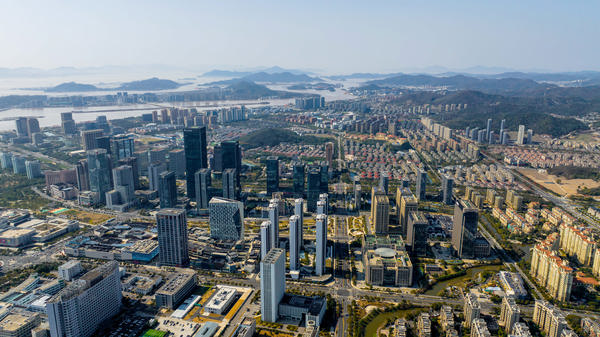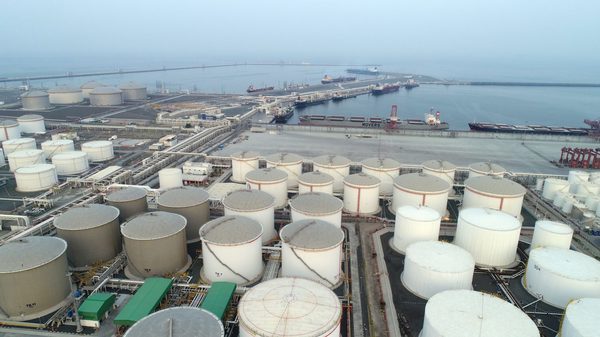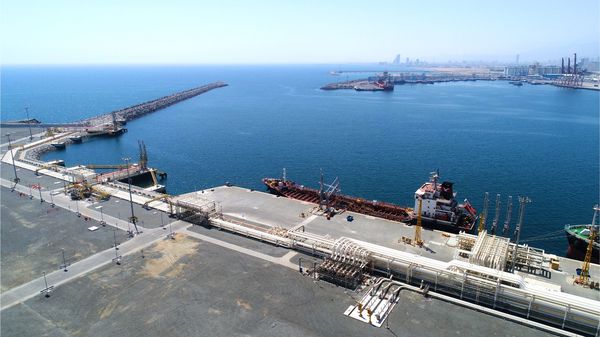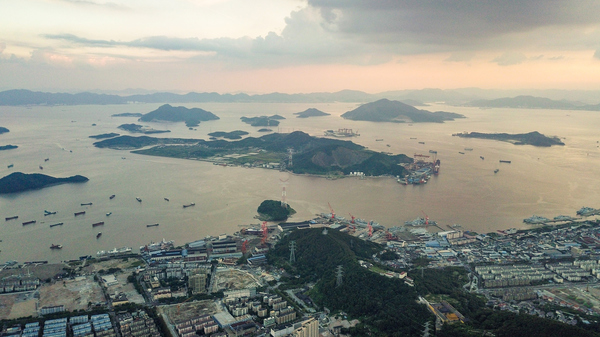East of Suez Fuel Availability Outlook 4 Feb 2025
VLSFO availability improves in Singapore
Bunker demand is low in several South Korean ports
VLSFO and LSMGO availability is good in Oceanic ports
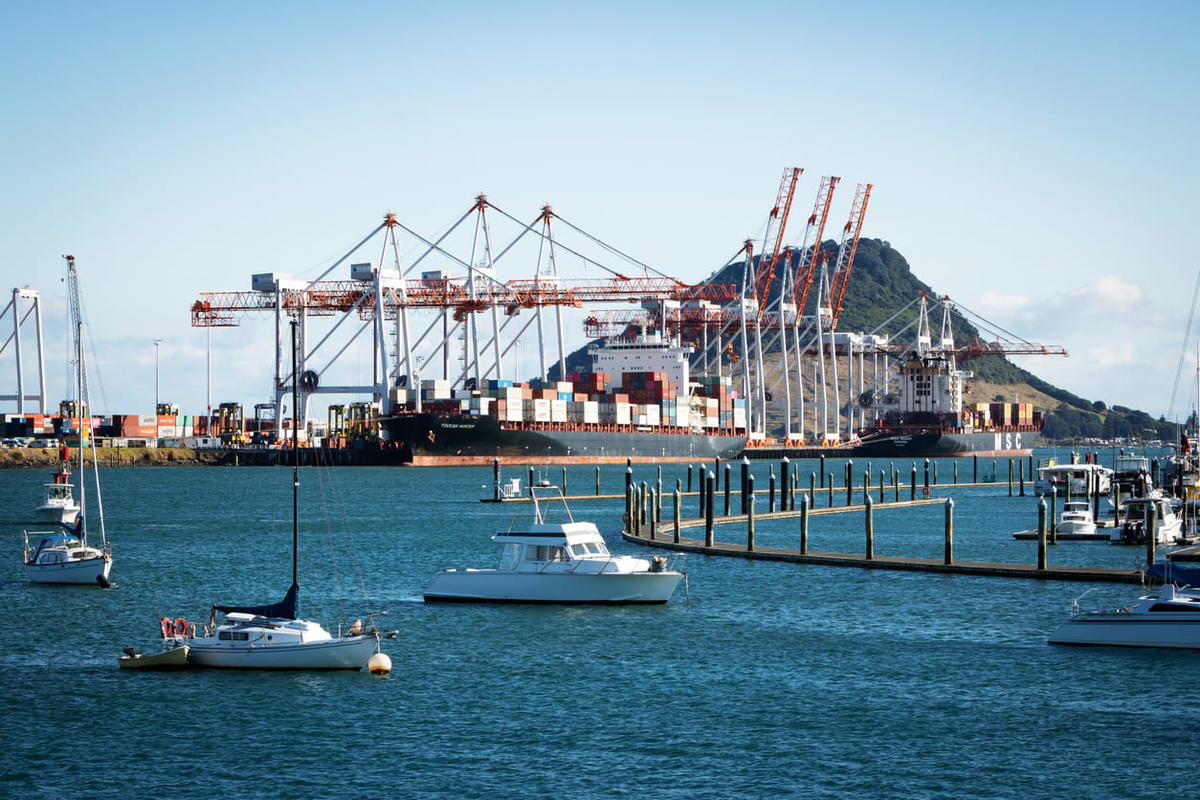 PHOTO: Cargo ships docked at Tauranga Harbour Port with Mount Maunganui in the background. Getty Images
PHOTO: Cargo ships docked at Tauranga Harbour Port with Mount Maunganui in the background. Getty Images
Singapore and Malaysia
VLSFO availability has improved in Singapore. Recommended lead times for the grade has reduced from 7–11 days last week, to 4–8 days now. HSFO lead times have increased from 10–12 days to up to 13 days, while LSMGO lead times remain largely unchanged at 2–5 days.
Bad weather is forecast in Singapore over the next two days and on 9–10 February, potentially disrupting bunkering operations.
At Malaysia’s Port Klang, VLSFO and LSMGO supplies are abundant, with prompt small-quantity deliveries readily available, while HSFO supply remains limited.
East Asia
In Zhoushan, the recommended lead time for VLSFO and LSMGO deliveries has decreased to about four days, down from 7–9 days last week. HSFO supply remains tight, with lead times extending into mid-February due to low stocks with several suppliers.
In northern China, Dalian and Qingdao ports have ample VLSFO and LSMGO supplies, but HSFO availability is currently limited in Qingdao. Tianjin is facing tight supplies of both HSFO and VLSFO, while LSMGO availability remains stable.
In Shanghai, LSMGO is readily available, whereas VLSFO and HSFO grades are in short supply. Fuzhou has strong availability of both VLSFO and LSMGO. Xiamen has abundant supply of VLSFO, but LSMGO supply is limited there.
At Yangpu and Guangzhou, prompt deliveries of both VLSFO and LSMGO remain constrained.
Bunker demand in China is expected to improve in the coming days as the Chinese New Year holidays end today. Most suppliers refrained from accepting new orders during the holiday period (28 January to 4 February).
In Taiwan, bunkering services have resumed at Keelung, Taichung and Suao ports after a brief halt from 28-30 January for the Chinese New Year holidays, and at Hualien port after being closed from 28-31 January. Kaohsiung port remained operational throughout the holiday period.
Lead times of around two days are recommended for VLSFO and LSMGO deliveries across all Taiwanese ports.
In Hong Kong, lead times for all fuel grades remain stable at around seven days, consistent with recent weeks. However, adverse weather forecast for 6, 7 and 10 February may disrupt bunker deliveries.
In South Korea, lead times for all fuel grades vary widely between 3–12 days across all ports amid low bunker demand, compared to the 5–11 days recommended last week.
High winds and rough sea conditions are forecast to hit Ulsan, Onsan, Busan, Daesan, Taean and Yeosu between 4–10 February, potentially disrupting bunker operations at these ports.
In Japan, VLSFO is widely available at major ports, including Tokyo, Chiba, Yokohama, Kawasaki, Osaka, Kobe, Sakai, Nagoya and Yokkaichi, while prompt supply is limited in Mizushima.
LSMGO supplies are stable overall, though securing prompt deliveries can be challenging in Tokyo, Chiba, Yokohama, Kawasaki, Osaka, Kobe, Sakai, Nagoya, Yokkaichi and Mizushima.
HSFO availability remains tight across all ports, while in Oita, all fuel grades are subject to availability.
Subic Bay in the Philippines may face intermittent inclement weather throughout the week, potentially disrupting bunkering operations.
Adverse weather is also expected to impact bunkering in Thailand's Koh Sichang and Leam Chabang on Sunday.
Oceania
In Western Australia, Kwinana, Fremantle and Kembla ports have ample VLSFO and LSMGO supplies, with standard lead times of 7–8 days. In New South Wales, LSMGO availability in Sydney is stable, but HSFO may require extended lead times.
In Victoria, suppliers in Melbourne and Geelong have sufficient VLSFO and LSMGO stocks, though securing prompt HSFO deliveries can be challenging.
Suppliers in Queensland, Brisbane and Gladstone have adequate VLSFO and LSMGO supplies, with recommended lead times of 7–8 days, but HSFO availability in Brisbane is limited.
Two tropical cyclones, Talia and Vince, are currently off Western Australia, moving west past Northwest Cape (Exmouth). Cape Lambert and Dampier ports have begun clearing berths for safety. Dampier is facing long-period swells due to severe Tropical Cyclone Talia, leading several terminals to suspend operations. These swells are expected to peak overnight into Wednesday morning, after which conditions will be reassessed. Berths will reopen as soon as local swell conditions allow safe operations, according to GAC Hot Port News.
In New Zealand, Tauranga and Auckland have sufficient VLSFO stocks. LSMGO supply is good in Auckland.
South Asia
VLSFO and LSMGO availability at several Indian ports, including Kandla, Mumbai, Tuticorin, Chennai, Visakhapatnam, Cochin and Paradip, remains subject to enquiry, as has been in previous weeks. Additionally, a supplier in Haldia is nearly out of stock.
Adverse weather at Sikka port may disrupt bunker operations on 6–7 February.
In Sri Lanka's Colombo and Hambantota ports, lead times for all fuel grades have dropped from around nine days last week to approximately six days now.
Middle East
In Fujairah, prompt availability remains tight despite weak demand, with lead times for all fuel grades holding steady at 5–7 days. Some suppliers can offer prompt stems at higher costs. Similarly, in Khor Fakkan, suppliers are recommending lead times of 5–7 days for all grades.
In contrast, Jeddah port in Saudi Arabia has adequate VLSFO and LSMGO supplies. However, bad weather is forecast in Yanbu on 6–7 February, which may impact bunker deliveries.
Adverse weather is also forecast in Egypt’s Suez and Port Said on 5–6 February, potentially disrupting bunker operations.
In Djibouti, VLSFO supply is under pressure, while LSMGO remains more readily available.
Omani ports, including Sohar, Salalah, Muscat, and Duqm, continue to have ample LSMGO stocks, with prompt deliveries available.
By Tuhin Roy
Please get in touch with comments or additional info to news@engine.online

Contact our Experts
With 50+ traders in 12 offices around the world, our team is available 24/7 to support you in your energy procurement needs.

